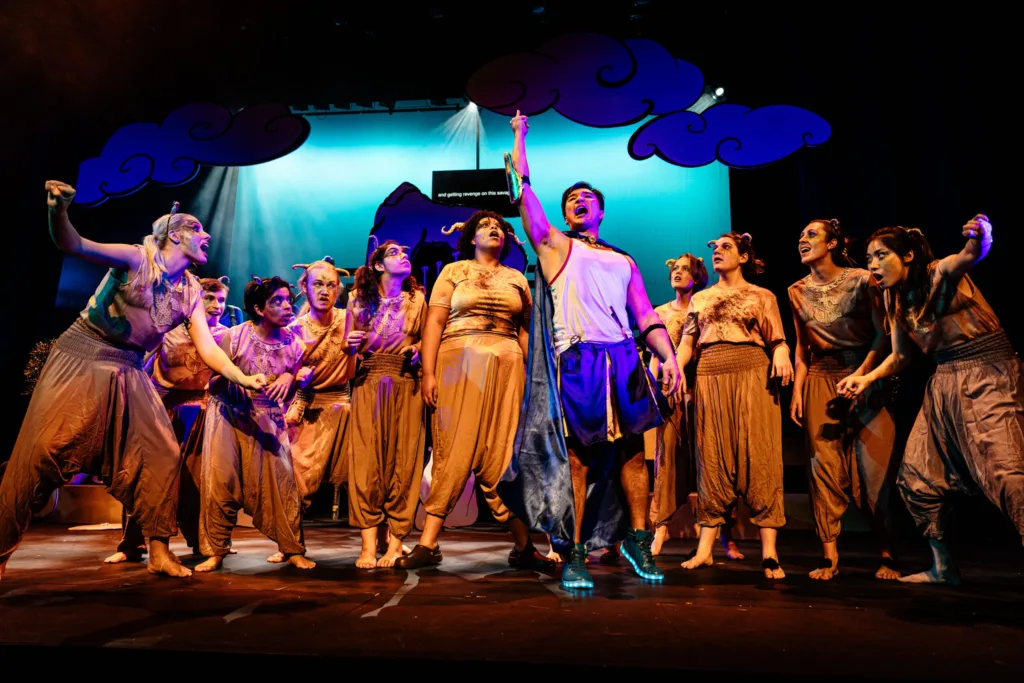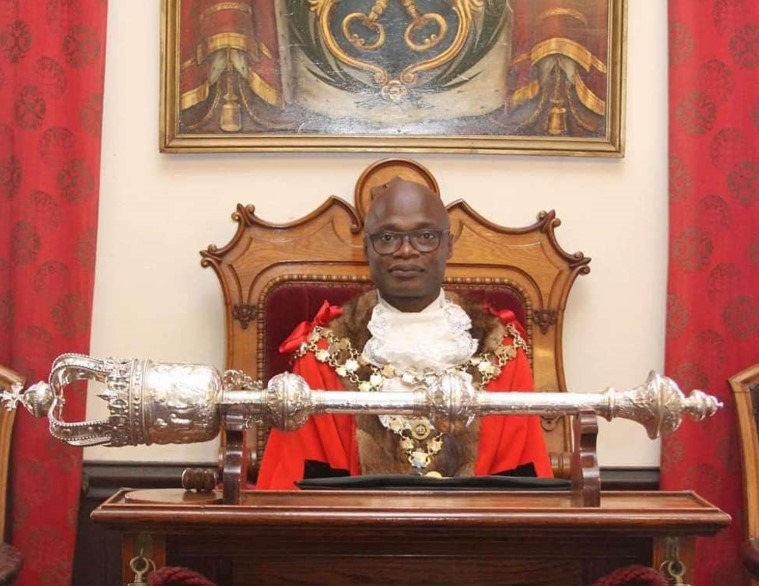The Ancient Greek play, Persians is the oldest tragedy in western theatre. First staged at a festival in 472 BC.
And yes, it still works, writes ANGELA SINGER.
Staged by Cambridge students as the main show for the triennial Greek Play, it has magnificent poetry.
The student actors, some of them classicists who have studied Ancient Greek, other actors who can take on a role in any tongue, bring an atmospheric and evocative rhythm to the language.
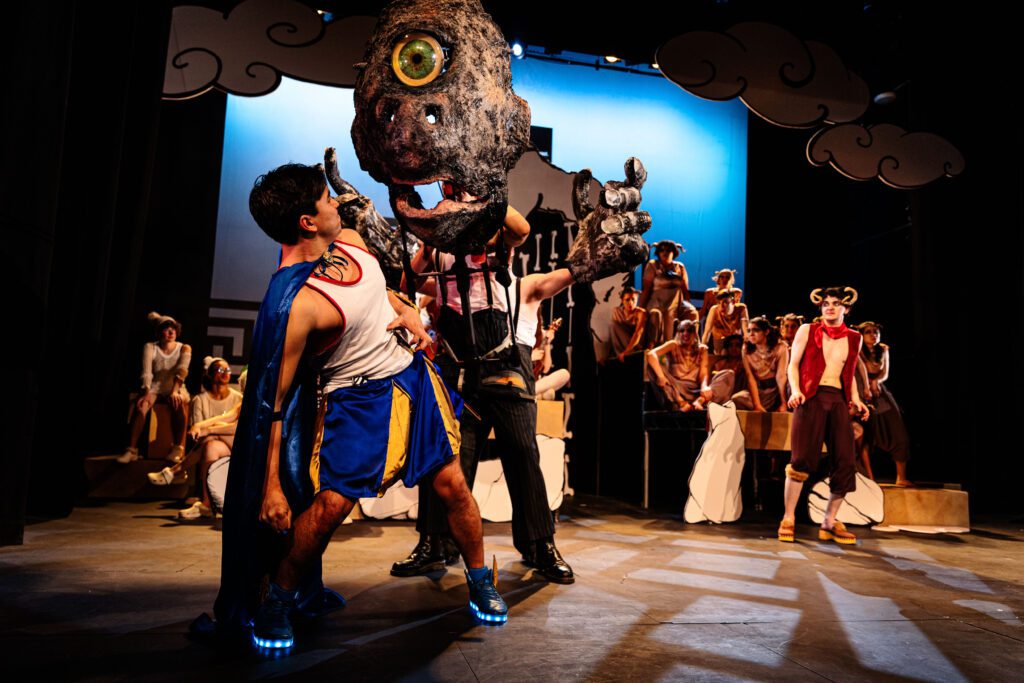
Sometimes you don’t need to read the surtitles – so engaging is the emotion on stage.
Unlike other Greek plays, this one about the Persian invasion of Greece was not inspired by a myth. These are events the original audience experienced.
The Persian army was defeated and slaughtered. “Never have so many been killed in a single day,” we are told. Some say the playwright Aeschylus was inviting his audience in Athens to empathise with their thwarted enemy.
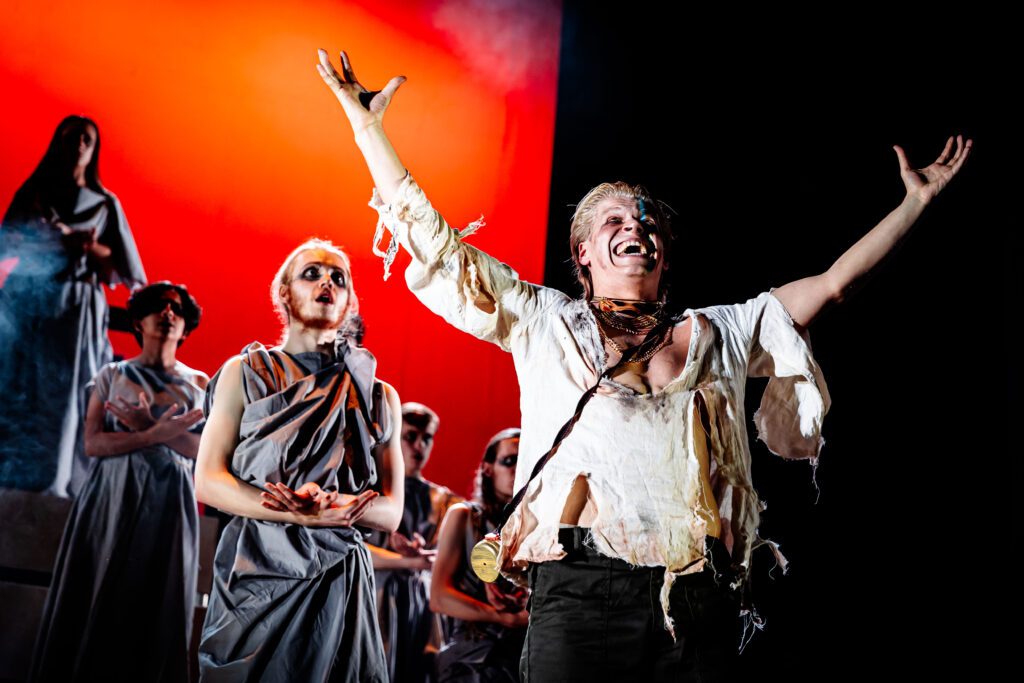
But was he? This play has been written in the spirit of the triumphant football fan whose team has beaten the opposition seven nil.
Seeing one of the other team’s fans walking disconsolately towards him down the street, he says casually: “I missed the match – can you tell me the score.”
This is Aeschylus telling the Greeks how clever they are. We are not told just once, in every gory detail, how the Persians tried to conquer Greece but were completely and utterly vanquished. We are told three times.
First the chorus of defeated Persians tells the audience how childless parents will weep, elders will mourn, wives fill their beds with tears.
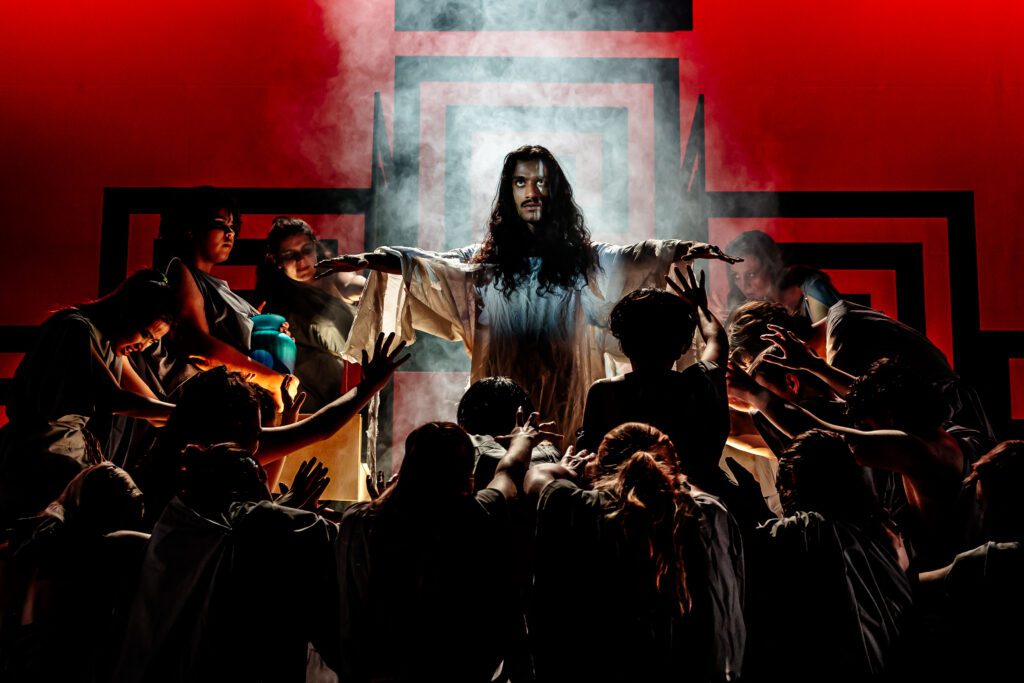
Then they tell their Queen Atossa (played majestically and powerfully by Maria Telnikoff ) that her son Xerxes lives but has led his ships and his men to destruction.
Then we see Atossa do what we still do in grief, she organises a memorial service. She will pray. She raises the spirit of her dead husband Darius (a masterful Mithiran Ravindran) to tell him what their son has done.
Darius’s response is: Is he out of his mind? (“Is his mind diseased?”) Asia is finished, he says. It’s on its knees. No one in the world will now respect Persia.
The lesson is: lead no expeditions to Greece – even if our army outnumbers theirs. The Persians had 1,000 ships to the Greeks’ 350 (or thereabouts), but the Greeks used their wits to defeat them.

In the final scene, we see the traumatised Xerxes, shocked and shaking, dragging himself on stage – a memorable performance from Saul Barrett, his garment shredded – his soul destroyed. It is true that the play is one long lament – but it is the lament of the defeated to be watched by the victors.
Just as we are told that Shakespeare’s actors always finished their show with a dance, even after Macbeth and Hamlet, to leave their audience on a high, Ancient Greek drama festivals would follow three tragedies with one light play.
The Cambridge Greek Play’s double bill ends with Euripides’ Cyclops – an amusing romp played with aplomb. It is the only Satyr play to survive complete from around 408 BC.
There are lovely comic performances here: Ilya Wray as Odysseus appears as a Marvel Comics character with wings on his heels.
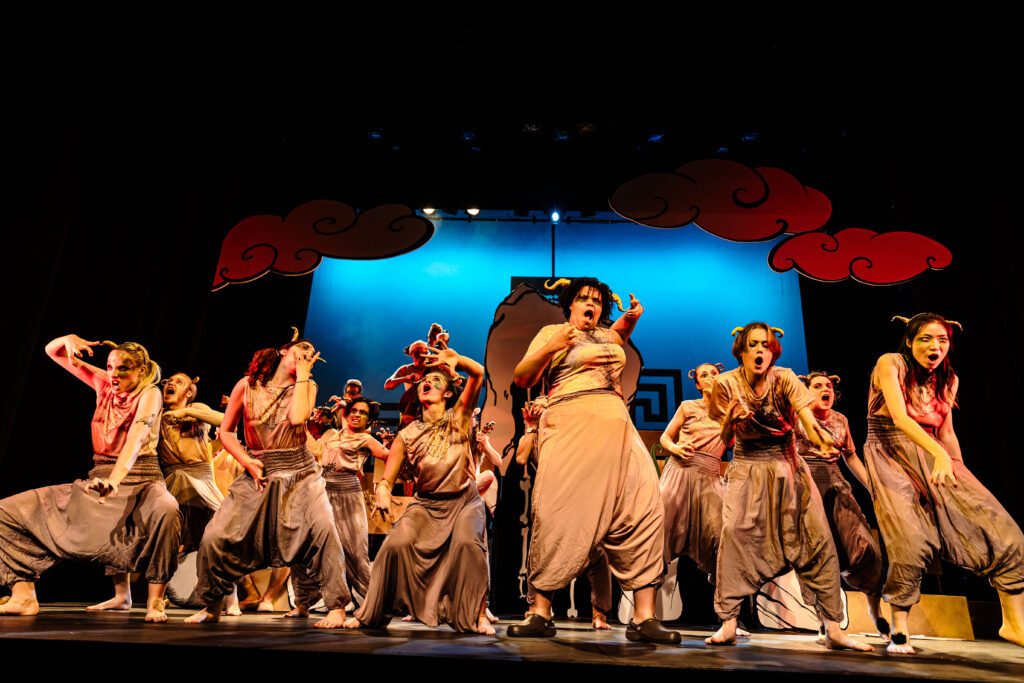
On their way back to Greece from conquering Troy, he and his men have reached Sicily where the giant Cyclops, Polyphemus (a huge puppet magnificently voiced by Jude Ashcroft) usually eats his visitors.
But again, using superior Greek wit, our hero gets the giant drunk and pokes out his one eye so he and his men can escape from the giant’s cave by clinging on to the underneath of sheep.
Now the excellent chorus, which told the story of the Persians’ ruin with such heart-wrenching sorrow, offers some great comic performances as the Satyrs, creatures part human, part goat.
Saul Bailey as their leader Silenus has bucketfuls of panache. A lovely comic turn. An orchestra on stage of percussion, trombone, saxophone, flute, guitars, and violin, playing jolly music, also serves as the sheep with intermittent baas.
As ever, The Cambridge Greek Play, this year directed by Daniel Goldman with original music by Alex Silverman, is a privilege to see. The entire cast has great stage presence.
This is a glowing production of stella performances.
Something to see and treasure.
The Cambridge Greek Play is at Cambridge Arts Theatre until Saturday, October 22.


